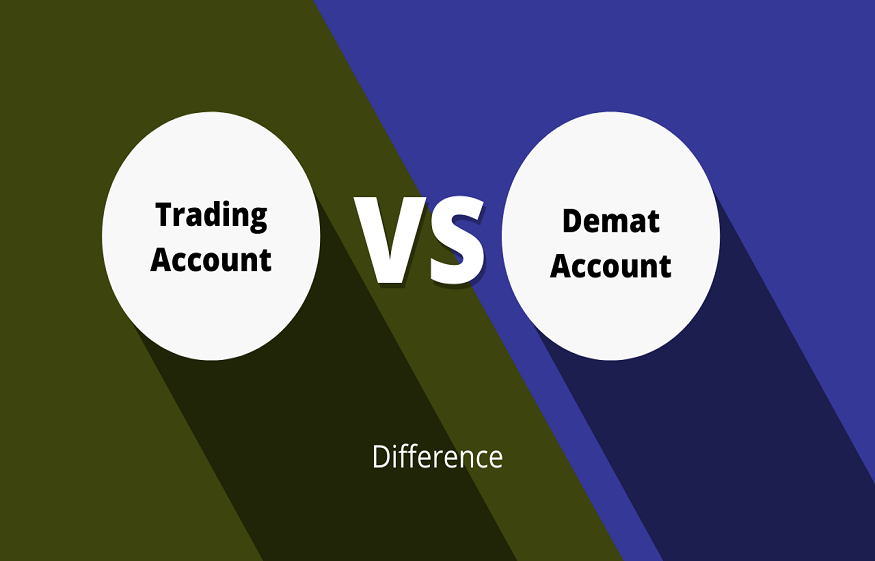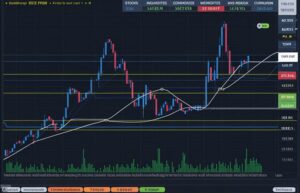
We are all familiar with savings accounts at banks. They allow easy access to our funds while offering security against theft and mishandling. A demat account provides investors with the same.
Investing in stocks requires a Demat account nowadays. Investing in stocks requires a Demat account nowadays.
Shares and securities are held in electronic form on a Demat Account. What is Demat account: Also, known as dematerialized account . It is used for holding shares that have been bought or dematerialized so that they can be traded easily online.
What is a Demat Account?
An Electronic Demat Account, also called a Dematerialized Account, allows you to hold shares electronically. During online trading, shares are purchased and stored in a Demat Account, which facilitates easy trading for users.
In a Demat Account, individuals keep records of all the investments they have made in shares, government securities, exchange-traded funds, bonds, and mutual funds. The Indian stock market’s digitization was enabled by DEMAT and improved SEBI governance through better governance.
NSE introduced the Demat account in 1996. By storing securities in electronic format, the Demat account reduced the chances of theft, damage, and malpractices.
As an alternative to physical share certificates, dematerialization involves converting them into digital ones, which are easier to maintain and easier to access from anywhere in the world.
For investors who want to trade online, they need to open a Depository Participant (DP). As a result of dematerialization, investors are no longer required to hold physical share certificates and can track and monitor their investments more efficiently.
Open A Demat Account
You can easily open a Demat account by following the steps in this guide. It can help put things into perspective if you’re interested in opening one.
Step 1: Select Depository Participant (DP)
The first and foremost step in opening a Demat account is choosing a depository participant (DP). Through banks, stockbrokers, and online investment platforms, you can select the best DP services available in India.
If you are choosing a DP, look for features and offerings that meet your requirements.
Step 2: Submit the opening form for a depository account
To open a Demat account, go to your depository participant’s website and complete the online opening form. Many depository participants allow you to open both trading and Demat accounts at the same time.
Step 3: Know Your Customer (KYC) requirements.
When you have completed the Demat account application, it is time for the Know Your Customer (KYC) documentation. You must provide scanned copies of KYC documents such as a copy of your ID, a copy of your address proof, and a copy of your bank account statement.
Before you apply, be sure that you have all the required documents at hand since you’ll be able to move the process along more quickly.
Step 4: Verify the information
You are required to undergo an IPV process after you provide your KYC details, and this is an important step you must take to confirm the validity of your information. If required by your DP, you may be required to attend an in-person appointment at one of their offices.
However, many depositor participants now provide IPV through the use of mobile devices or webcams.
Step 5: Sign the agreement copies
The contract, which lays out both the depository participant’s responsibilities and rights after verification, will be required to be signed by you and your Depository Participant after the verification process is complete.
Step 6: Once the above processes are completed, you will receive a BO ID number
As soon as your DP receives your signed agreement, he will begin processing your Demat account application. A Beneficial Owner Identification Number (BO ID) will be provided once your application has been approved. You can use this BO ID to access your Demat account.
Demat Account Features & Benefits
The reason you need a Demat Account when investing in shares and some other securities is that physical share certificates are no longer issued, and all records of share ownership are now in an electronic format.
Shares cannot be purchased or sold without a Demat Account.
Safety and efficiency:
A Demat account does not involve the use of any paper certificates, and everything is handled electronically, so there is no reason to worry about loss or damage. Everything is done automatically, and in electronic form, so there is not much room for human error.
Easy access:
Demat Accounts offer you the option of finding out what shares and other securities are in your portfolio, as well as their value. With some Demat Accounts, you are sent an SMS whenever a trade is made.
Cost-effective:
Because stamp duty on share certificates has been eliminated, Demat provides cost-effectiveness. And share transfers aren’t cumbersome due to fewer paper documents.
Diverse investment options
By opening a Demat Account, you can invest in a wide variety of products, including debentures, mutual funds, government bonds, and exchange-traded funds.
Securities as collateral for loans
It is much easier to obtain a loan against securities from the same financial institution if you have a Demat Account and a Savings Account.







